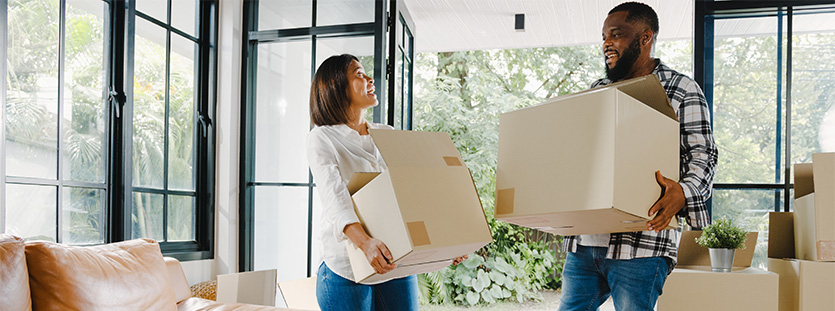What to Pack When Moving Abroad: Essential Tips for Overseas Moves
Moving countries is a big step. There’s so much to plan, from finding a new place to live to researching local amenities to learning the customs, climate and culture in your chosen destination. Once your plans are in motion, there is the question of what to pack when moving abroad. This involves weighing up a host of practicalities and personal preferences, and while some generalisations probably apply to everyone, of course, there will also be personal choices that are unique to you.
To simplify the packing process, here are 6 invaluable tips to guarantee a smooth transition overseas.
1. Research and Planning
When considering what to pack for your move abroad, research is crucial. That way, you can determine what makes the most sense for you to take to your new home. There’s no sense in paying to transport a hefty sofa halfway across the world if your new home will be fully furnished, for example.
Here are some things to determine during the research and planning process:
- Have you got all the paperwork sorted? Check out our international moving advice to make sure there’s nothing you’ve missed
- Will your move be temporary or permanent? If you are planning to return to your original home, it makes sense to look for storage solutions for some of the things you can’t take with you
- Will your new home be furnished or unfurnished? This will help you to work out what you need to source for your new property (and whether to bring it with you or buy it when you get there)
- Which of your belongings can you not live without on a daily basis? These might be items with strong sentimental value, or just objects you find really useful
- What is the climate like in your chosen destination? This will determine whether you pack your own clothes and bring them with you, or buy a whole new wardrobe that’s more suited to the weather
- If you have pets, can you bring them with you or will you need to find a suitable new home for them?
- Are there country-specific considerations that you will need to make when planning what to pack when moving abroad? For example, if your destination country has different electrical outlets you may need to buy adaptors before you go or purchase new appliances when you get there
2. What to Pack: Day of Travel
To streamline the packing process, you should separate what to pack when moving abroad into items you can live without until you reach your destination, and essentials that you’ll need on the journey. We advise taking the following items on the day of travel:
- Important documents, such as passports, visas, rental agreement documentation, proof of medical insurance, bank statements, and medical letters (if required)
- Clothing and footwear suited to the climate and culture of your new destination
- Enough toiletries and personal care items to see you through the initial few days
- Any electronics that you will need for either personal or work-related purposes such as tablet, phone, laptop, chargers (consider adapters for your plugs or chargers)
- Any medications that you need to take and supporting letters (if required)
- Favourite tea bags or coffee sachets to help you settle into your new environment
3. What’s Worth Leaving Behind
When it comes to choosing between what to pack when moving abroad and what to leave behind, it’s not always an easy choice. Our belongings can possess a sentimental value, so it can be difficult to part from things that feel like home to us. However, some items are cheaper to replace than transport overseas, such as:
- Electrical appliances – kitchen appliances, TVs, speakers, gaming consoles (might require adapters)
- Toiletries – these can easily be replaced after the move
- Worn furniture – self-assembled furniture when dismantled can weaken its integrity (it’s better to buy new than transport it across)
- Vehicles – some countries prohibit car importation, others require importation fees (it’s often more cost-effective to buy or rent a car in your new country)
- Restricted items – ensure your belongings have a successful journey overseas by checking the rules of the country first
- Any belongings you no longer use – clothes, shoes, coats, bedding, decorations, board games, DVDs or books (consider donating or selling)
4. What to Consider Storing
Depending on your duration of time abroad, whether it be for work purposes or a permanent transition, you could consider having your belongings professionally stored. This could save parting with them permanently or having them shipped across, such items include:
- Clothing items – they might not be suitable to wear in your new climate but might be required in the future
- Valuable artwork – such as paintings or sculptures
- Large furniture – like beds, sofas, tables and chairs
- Any antiques that you’ve collected
- Photo albums and keepsakes that you would prefer to be safely stored
- Hobby items – such as large musical instruments, craft sets, gym equipment, sports equipment
- Entertainment items – DVDs, CDs, records, console games
5. What’s Left Is What to Pack When Moving Abroad
Once you’ve eliminated items that you’ll bring on the day, stuff you’ll leave behind and the things you’ll put into storage, what remains is everything you’ll need to pack for your new destination.
There is only so much you can take on the day of travel. That’s where the assistance of a packing and removal service from a trusted international moving company can benefit you. Especially if you’re looking to move the following items abroad:
- Electrical devices – kitchen appliances, TVs, gym equipment, office equipment, gaming consoles, lamps
- Large indoor furniture – bed frames, mattresses, sofas, tables, chairs, wardrobes, mirrors, desks
- Garden furniture – plant pots, tools, outdoor furniture
- Personal items – clothing, shoes, bags, jewellery, books, musical instruments, hobby-related items
- Decorative items – artwork, sculptures, seasonal decorations
- Practical items – curtains, blinds, towels, bedding, rugs
- Sentimental items – framed pictures, photo albums, paintings, storage boxes with keepsakes
6. Pitfalls to Avoid
To ensure your transition abroad is as stress-free and as successful as possible, we recommend avoiding the following pitfalls:
- Insufficient research on what to take or leave behind
- Lack of planning for potential customs processing
- Unrealistic budget for packing and moving services
- Underestimating timelines of your transition overseas
- Not measuring furniture ahead of moving
- Not adequately weighing applicable items ahead of moving
- Failure to check if all of your important documentation is valid
Get Help To Pack When Moving Abroad
At GMS, we pride ourselves on helping our clients move globally with confidence, ensuring a smooth transition from door to door.
Whether you’re looking to relocate from Austria to Australia, Monaco to Thailand, Sweden to the United States of America or the United Kingdom to New Zealand, we offer a full range of moving options and various associated services.
Once you’ve decided what to pack when moving abroad, we can make it easy for you to transport your belongings from A to B. Find out more about our professional packing and moving services, and make your move simple and stress-free.






